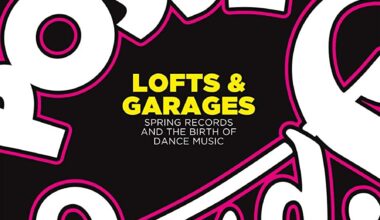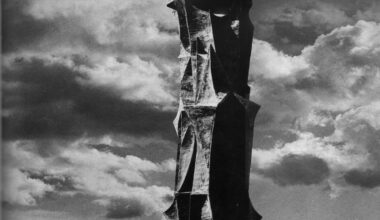To paraphrase AC/DC, if you want a three-CD retrospective from a member of techno’s founding fathers, you’ve got it

A leading light of Detroit’s second wave of techno pioneers, Robert Hood is also one of the most revered, bestowing a series of sacred texts upon the faithful since around the time Taylor Swift was born.
‘20 Years Of M-Plant Music’, an almost career-spanning collection of Hood’s M-Plant output (so nothing from his Underground Resistance years), goes some way to explaining why he inspires such devotion. It sees two decades of single-minded techno distilled into three CDs – his earlier, minimal compositions on the first (very much the Detroit disc), funk and soul (the timing of which coincided with his relocation from Motor City to Alabama) on the second disc, and a third set of previously unreleased bits and new tracks. It has a combined running time of three hours and 44 minutes. Hardly a moment is wasted.
Fittingly, we open with a homage to Detroit, specifically the city skyline, in 1997’s ‘The Grey Area’. Like most early Hood, not a lot happens, but what does happen is all the more exquisite for its lack of adornment. The precisely executed layers of percussion, drums and nagging-but-evocative synth loops are characteristic of a producer who combines power with space, allowing his tracks to breathe.
Fussy is something Hood is most certainly not. At times – on ‘Protein Valve 1’, for instance, or on ‘Untitled’, when the hi-hats don’t appear until well over halfway in – his tracks have all the potential threat of an ill-lit corridor disappearing into the blackness. It’s the reason his work is so often described as “cerebral”, despite lacking literary lyrics or dizzying key changes or any of the other accoutrements we normally associate with clever music, because it’s a right-brained kind of cerebral, leading the mind along those corridors.
Equally, Hood’s early brand of minimalism asks us to reassess what we perceive as a DJ tool – those motorised slabs of beat that bind a set, but are designed specifically as bridges between one peak and the next. On a practical level, much of his Detroit output qualifies, yet it’s that cerebral edge that demands your home-listening time. Later, on 2001’s ‘The Greatest Dancer’, Hood introduces funk chords via a Sister Sledge sample. The consummate DJ, he’s well aware of the track’s ability to fire up a set. Indeed, anybody who’s heard it played out knows that to be the case. It’s less effective as a standalone piece, though, much more obvious and ironically more of a DJ tool than anything you’ll find on the first of the three CDs.
Even so, ‘The Greatest Dancer’ earns its place. How else could we appreciate Hood reconciling his more ascetic side with a desire to explore funk and soul, as he does on CD2? Reactivating his Floorplan alias to much acclaim in 2010, he produced an actual song in ‘We Magnify His Name’, a joyful mix of gospel and house, while ‘Baby, Baby’ is pure funk and ‘Never Grow Old’ another dose of celebratory 4/4 gospel. Hood became a Christian in 1998 and it’s tempting to think that this and his move to Alabama somehow coalesced in the euphoric Floorplan-era tracks. That they mix so well with the straight-up techno of ‘Alpha’ or the popping acid of ‘Power To The Prophet’ is a testament to the unifying vision of the man with his hand on the tiller. Whatever the mood, however funky the chords get and however yearning the vocal, it’s still recognisably Robert Hood in charge.
What then for the future? More of the same hopefully – certainly if the new tracks and edits on CD3 are anything to go by. ‘20 Years Of M-Plant Music’ closes with ‘Minimal Minded’, a fresh cut that, by abiding to the principles of its own title, seals the knot on what is yet another essential addition to the canon. Another sacred text.





